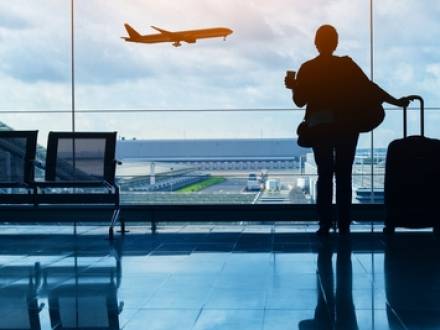
 Being stopped and arrested for DUI is never a positive experience. However, if you are stopped for suspected DUI while entering or leaving Baltimore/Washington International Airport (BWI), you must be aware of how airport jurisdiction differs from local Maryland roads. BWI is one of the busiest travel hubs in the Mid-Atlantic, with millions of travelers passing through annually. Maryland law enforcement pays close attention to impaired driving near the terminals and surrounding roadways.
Being stopped and arrested for DUI is never a positive experience. However, if you are stopped for suspected DUI while entering or leaving Baltimore/Washington International Airport (BWI), you must be aware of how airport jurisdiction differs from local Maryland roads. BWI is one of the busiest travel hubs in the Mid-Atlantic, with millions of travelers passing through annually. Maryland law enforcement pays close attention to impaired driving near the terminals and surrounding roadways.
A sobriety checkpoint at BWI or its access routes can catch drivers who may have had a few drinks on the airplane by surprise. DUI charges in this area can fall under a unique mix of state, county, and even federal jurisdiction, making the case unfold differently than for a "typical" Maryland roadside arrest. While it is always important to have a strong legal advocate by your side during a DUI case, in this situation, it is even more crucial. A Frederick, MD DUI lawyer can help ensure your rights and your future are protected throughout the process.
The heavy volume of traffic, particularly on holidays and late at night, makes the airport a logical target for enforcement. The checkpoints around the airport are designed to deter impaired driving, but also to protect travelers on connector roads, such as Aviation Boulevard, MD-170, and I-95. Typically, coordination occurs between the BWI Airport Police, the Maryland State Police, and the Anne Arundel County Police when searching for impaired drivers.
Because of this, a DUI arrest can involve county courts, or, if the incident occurs on federal property tied to the airport, federal magistrate jurisdiction may apply. It is essential to distinguish between a Maryland state DUI charge and a federal DUI charge, as cases may be prosecuted differently and the penalties can vary accordingly.
DUI (§21–902. (a) (1) (i)) in Maryland is Driving Under the Influence with a BAC of 0.08 percent or higher, or obvious, substantial impairment. DWI is Driving While Impaired with a BAC between 0.04 and 0.07 percent or noticeable impairment. Officers at checkpoints may check for both alcohol and drugs, via a breath test for alcohol and a Drug Recognition Expert (DRE) evaluation for drugs. A DRE is a specially trained officer who follows a standardized 12-step process when evaluating a driver suspected of being drug-impaired. Although the testimony from a DRE can be influential during a prosecution, limitations exist.
Those who are cited for DUI in the areas surrounding the BWI can face unique challenges that are not common in "regular" DUI charges. These challenges include:
An experienced DUI defense attorney may be able to challenge the legality of the DUI arrest. There may have been procedural flaws on the part of law enforcement or violations of constitutional protections. The breathalyzer results can be scrutinized for various reasons, including inadequate machine calibration, improper training of law enforcement personnel, or the suspect’s illness, medical condition, or medication that may have skewed the results. DREs can be cross-examined in suspected drugged driving cases, and there may be jurisdictional missteps that can be challenged.
A DUI at a BWI checkpoint is not routine and requires an experienced Frederick, MD DUI attorney from Diamant Gerstein, LLC who understands the mix of state and federal jurisdiction and the high stakes for travelers and professionals. Our attorneys have strong community ties, having been lifelong residents of Montgomery County. Call 301-560-2685 to schedule your initial attorney meeting. Se Habla Español. אנחנו מדברים עברית.
